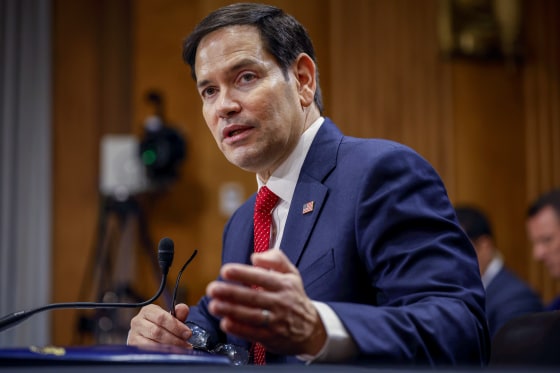
According to a readout of their discussion, Secretary of State Marco Rubio met with Panamanian President Jos Ra l Mulinoin over the weekend, according to State Department spokesman Tammy Bruce.
According to Bruce, Rubio informed Mulino of President Donald Trump’s worries about Chinese influence over the Panama Canal and made it clear that the current situation is intolerable and that, in the absence of quick changes, the United States would have to take the required steps to defend its rights under the Treaty.
A request for comment on whether military force may be included in “necessary measures” was not immediately answered by the State Department.
Trump listed gaining control of Greenland and the Panama Canal as two of his objectives for his second term, and he did not rule out using military force to achieve these objectives during a press conference held at Mar-a-Lago during the presidential transition period.
Mulino had previously disputed that the canal was under Chinese control. The Panama Canal Authority is in charge of overseeing and running the canal.
The United States used to own and run the canal, but in the late 20th century it gradually gave control to Panama, and by 1999, it had completely relinquished control.
If Americans believe that the canal’s neutral operations are in danger, one of the treaties controlling that transition does guarantee that the United States can step in and take control of the canal.
Bruce noted in the readout of Rubio’s meeting with Mulino that Rubio stressed to Mulino that Trump “has made a preliminary determination that the current position of influence and control of the Chinese Communist Party over the Panama Canal area is a threat to the canal and represents a violation of the Treaty.”
“We granted Panama access to the Panama Canal. China did not receive it from us. “They have misused that gift,” Trump stated during a press conference held at Mar-a-Lago in early January.
According to the State Department, Rubio’s conversation with the president of Panama covered a number of other topics, such as the current migrant dilemma in the United States and Latin America, enhancing the nation’s climate investment, and Mulino’s support for a free and democratic Venezuela.
